Resistant weed testing results – 2025 season
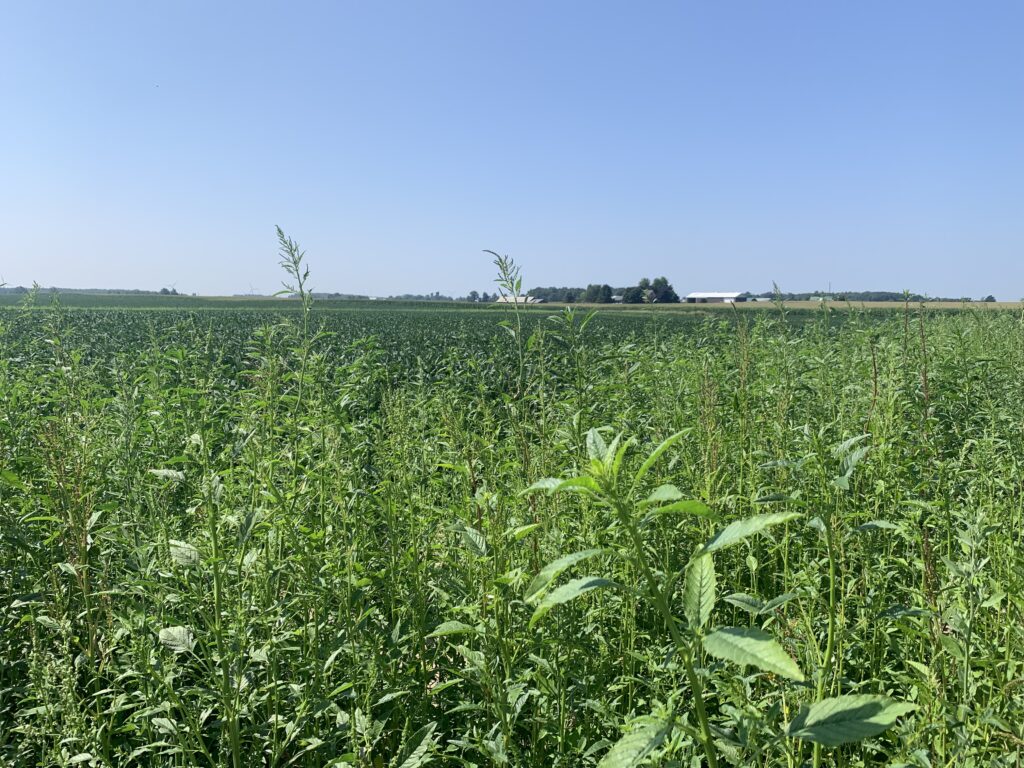
Herbicide‑Resistant Weed Testing Results (2025) See the latest results for herbicide‑resistant weed testing in Ontario, including distribution maps and resistance summaries. Read the Full Article […]

Herbicide‑Resistant Weed Testing Results (2025) See the latest results for herbicide‑resistant weed testing in Ontario, including distribution maps and resistance summaries. Read the Full Article […]
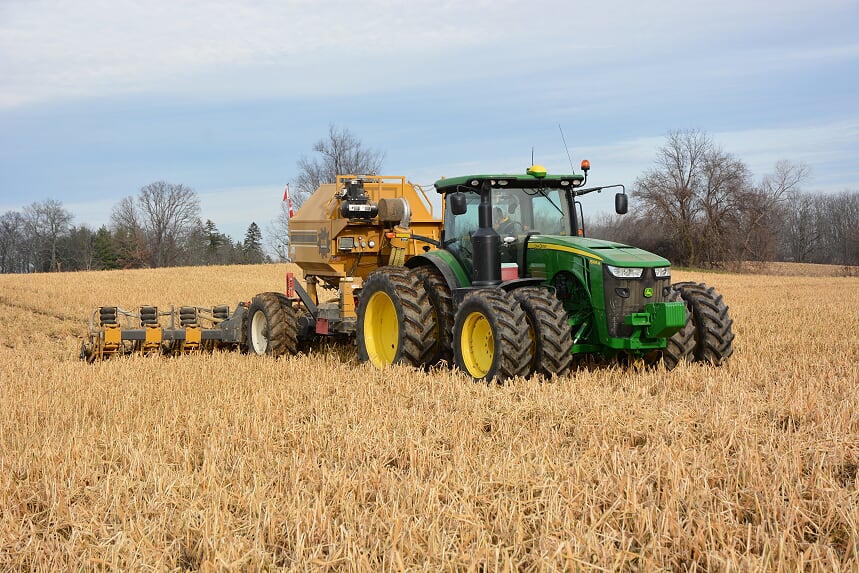
In this new series we will be exploring a wide range of topics on tillage within Cropping Systems including some new concepts like tillage’s role in the management of “The Soil Habitat”, new ways to talk about tillage categories, and the notion of the “5R’s of Tillage”. we will also explore the experiences of farmers […]
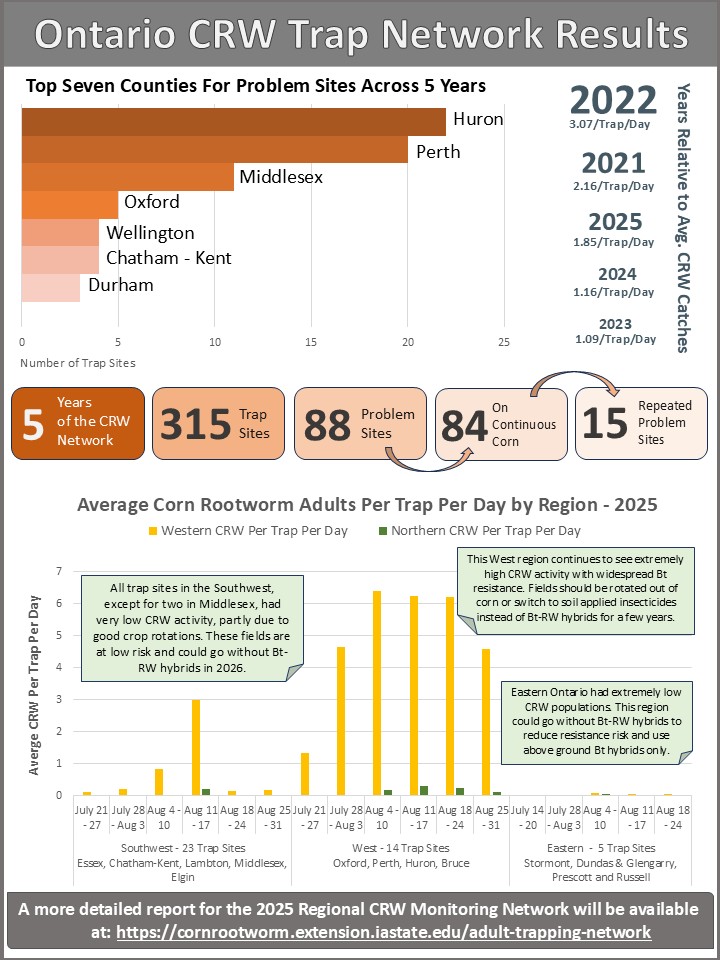
The Corn Rootworm Trap Network is 5 years old! We have learned a lot about corn rootworm populations here in Ontario and we value the efforts of all trap participants who have monitored sites each season. A special thanks goes to Dan Bihari, Senior GIS Specialist, OMAFA for maintaining the trap network platform and to […]

Planting In March 2025, Statistics Canada estimated Ontario farmers intended to plant 2.3 million acres of grain corn, 5% higher than the 5-year (2020-2024) average seeded acres of 2.2 million acres (OMAFRA Crop Statistics). Spring came early for many, but not all parts of the province in 2025. The first half of April delivered a […]

The 2025 growing season was challenging in many parts of Ontario, mainly due to moisture stress. Outcomes varied tremendously by region and from field to field. Some growers in central Ontario had complete crop failures, while other regions had above average yields. Acres dropped by 7% to 2.865 million acres compared to 2024. The provincial […]

We invite farmers to participate in a University of Guelph research study examining current knowledge and familiarity among Canadian growers and processors regarding pseudocereals (such as buckwheat and quinoa). The purpose of this study is to identify barriers to cultivation and utilization and explore opportunities for growth in this sector. Your perspective is essential to […]
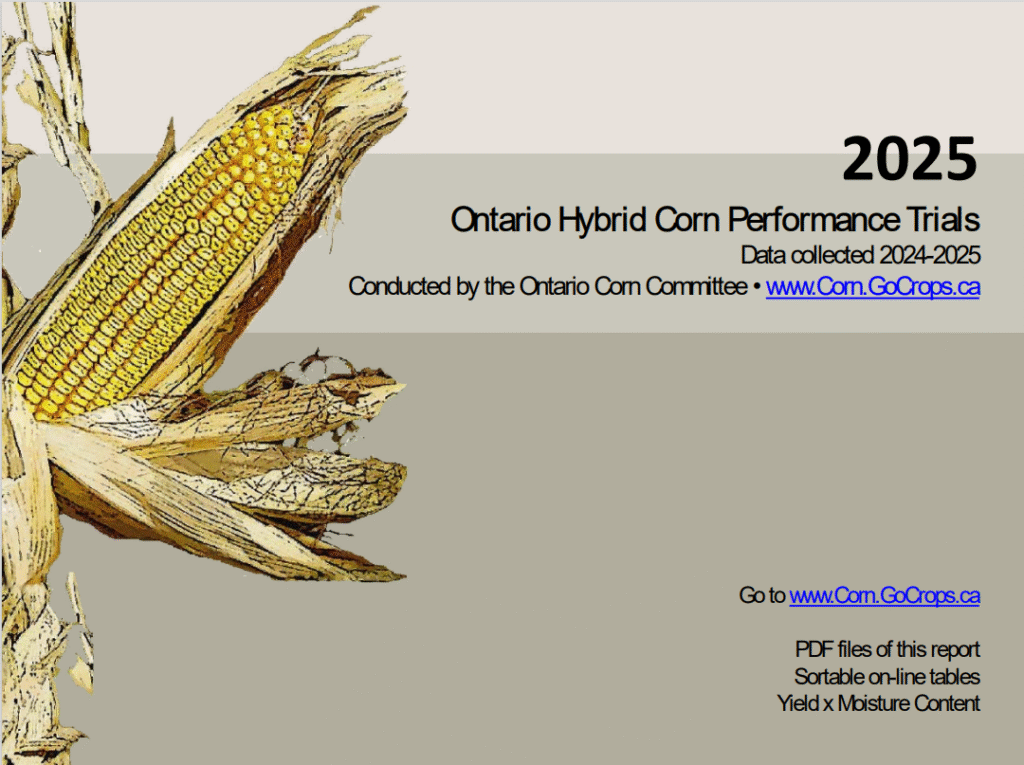
The 2025 Ontario Corn Committee (OCC) hybrid performance trials are now available at GoCrops.ca (Link HERE). Over past decades, Ontario’s average corn yields have increased around 2 bu/ac/yr. Staying current with new and competitive yielding hybrids is important. A key benefit of OCC trials is the ability to compare a large number of hybrids. These […]

2024 Planting Conditions In the fall of 2024, growers across Ontario were able to seed winter wheat, barley and triticale into almost perfect conditions. A significant portion of winter cereal acres were seeded in September, but with persistent summer-like conditions, growers continued seeding well into late October. The optimum conditions also allowed for many to make a fall herbicide application resulting in excellent dandelion and perennial weed […]

Acreage Overview In 2025, approximately 130,000 acres of dry beans were insured by Agricorp in Ontario. This is higher than the 116,000 acres harvested in 2024 and the highest since 2020, when over 156,000 acres of dry beans were harvested in Ontario. The acreage of each market class in 2025 is presented in the table […]

Winter 2024 and Spring 2025 Conditions Regular freeze-thaw cycles occurred, but with so much snow cover across most of the province, few fields were exposed to very cold air temperatures. Springtime reports indicated there was below-average alfalfa winterkill. On March 28th, 2025 an ice storm struck central and eastern Ontario, as well as the counties […]
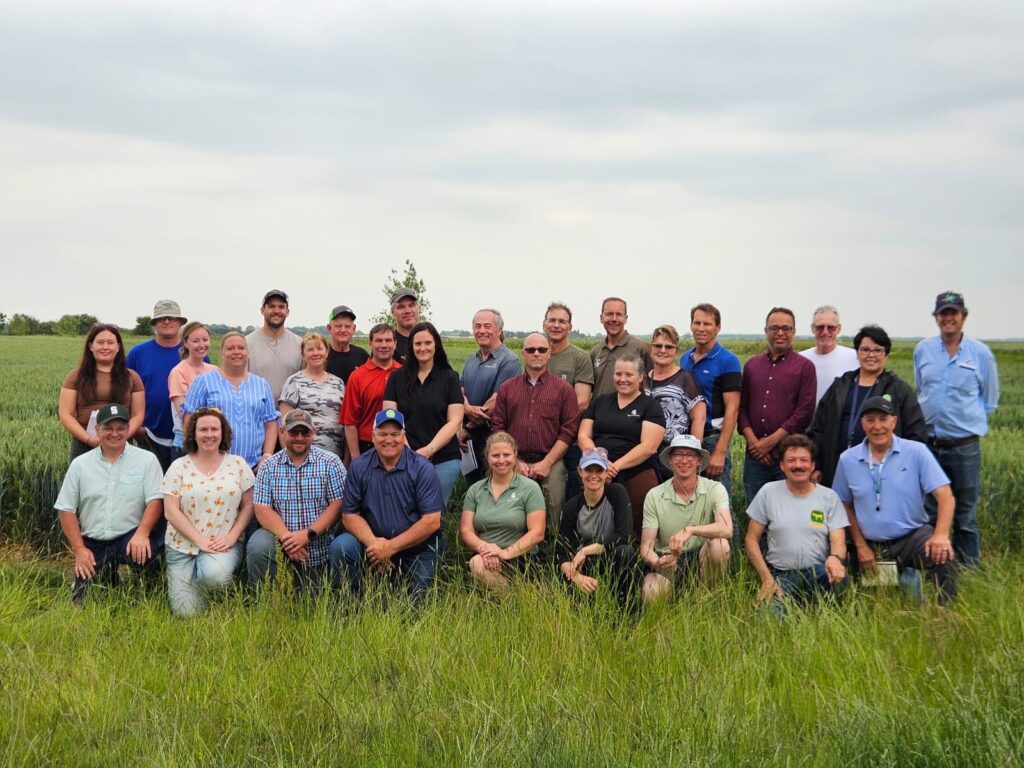
Registration for the 2026 Great Lakes Yield Enhancement Network (YEN) is now open. The Great Lakes YEN works to help farmers improve crop returns through a greater understanding of crop performance. The Great Lakes YEN is currently focused on winter wheat and covers the geographic area of the Province of Ontario, Canada, and the Great […]
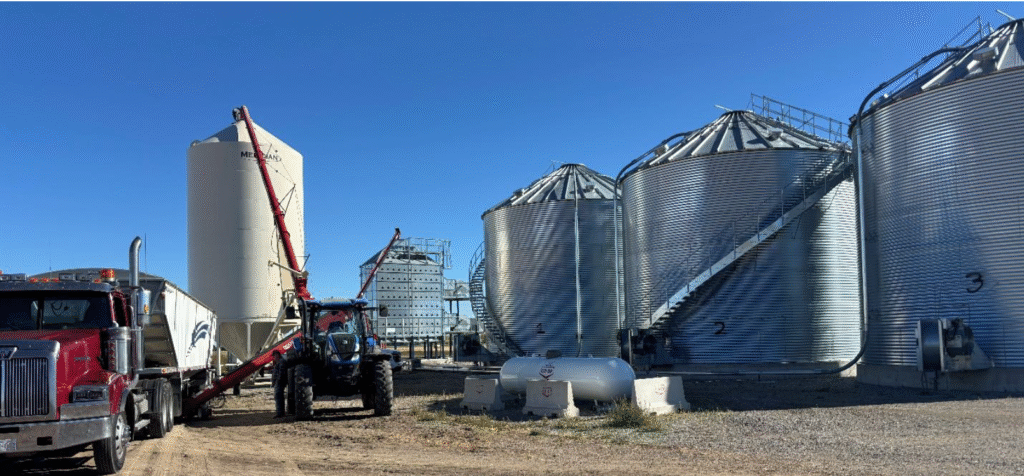
Efficient Grain Drying Techniques for Quality & Profitability Hosted by the Engineering and Innovation Unit, Environmental Management Branch, OMAFA This webinar has now been completed, but a recording is available at the following link: Date: Wednesday, December 3, 2025 Time: 7:00 PM – 9:00 PM (EST) Virtual: https://us06web.zoom.us/meeting/register/QpJhYp_hQ5OCkZvTfkkPhA Meeting ID: 841 3257 1925 (Registration is […]
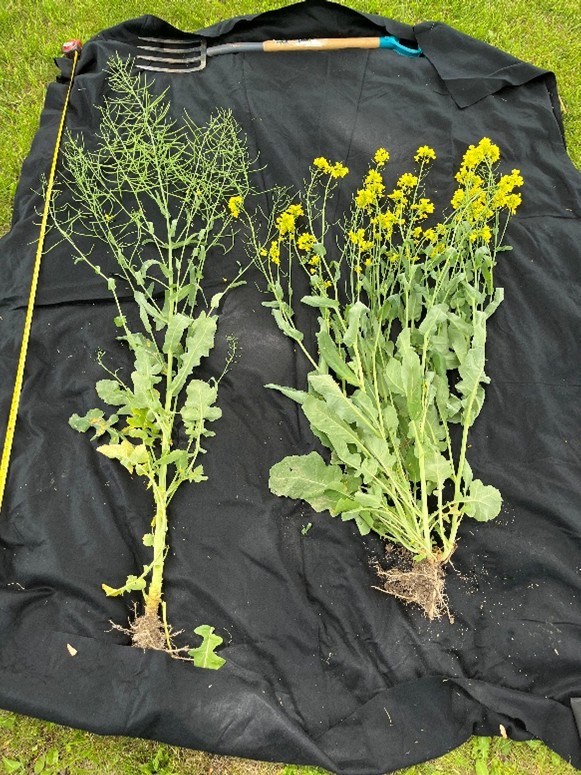
In 2025, there were nearly 46,000 acres of canola insured by Agricorp. This includes winter canola seeded in 2024 and spring canola seeded in 2025. There were about 12% fewer acres compared to last season. Spring Canola Acres of spring canola in the Temiskaming District, where the greatest acreage of canola is grown in Ontario, […]
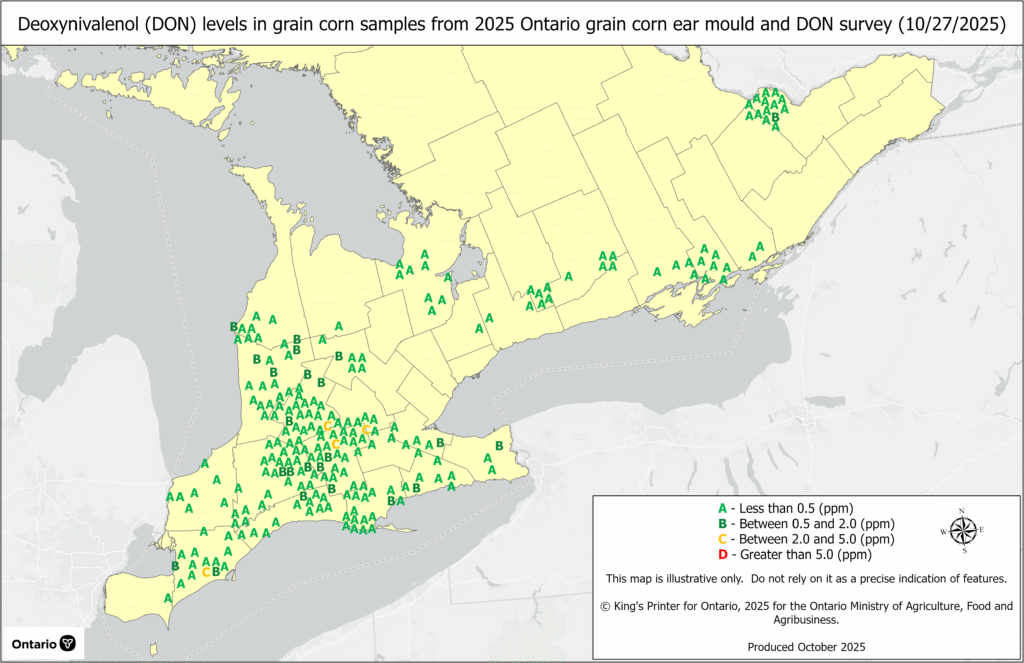
OMAFA field crop specialists in collaboration with Grain Farmers of Ontario (GFO) and members of the Ontario Agri-Business Association (OABA) have completed the 2025 annual Ontario corn ear mould and DON mycotoxin survey. Corn ear moulds such as Gibberella and their corresponding mycotoxins occur every year in Ontario. These mycotoxins, particularly deoxynivalenol (DON, also referred […]

Wind erosion can cause significant soil loss. This fall, consider how your residue management and tillage practices can help reduce risk of erosion by wind over the winter and into next spring. […]